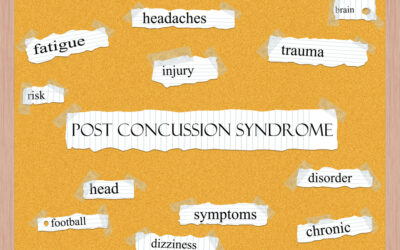🎯 Key Points
- Feeling like you don’t belong in the queer community despite identifying as LGBTQ+.
- Fear of being judged or rejected by other queer individuals.
- Constantly comparing yourself to others within the queer community.
- Doubting the validity of your own queer identity.
- Struggling with internalized homophobia or transphobia as a result of societal norms and expectations.
Queer Imposter Syndrome is a psychological phenomenon that affects individuals within the LGBTQ+ community. It refers to a persistent feeling of self-doubt, inadequacy, and an irrational fear of being exposed as a fraud or not belonging within the queer community. This syndrome can have a significant impact on an individual’s mental health, causing anxiety, depression, and a sense of isolation.
In this article, we will delve into the causes and symptoms of Queer Imposter Syndrome, explore potential tests for diagnosis, and discuss various treatment options available to support individuals in overcoming this distressing condition.
Causes of Queer Imposter Syndrome.
1. Internalized Homophobia.
Many queer individuals have grown up in societies that stigmatize or invalidate their sexual orientation. This can lead to internalized homophobia, where individuals believe negative stereotypes about themselves and doubt their authenticity as queer individuals.
2. Lack of representation.
The lack of diverse and positive representation of queer individuals in media, literature, and other platforms can contribute to feelings of not belonging or not being a “real” queer person.
3. Comparison to societal norms.
Society often promotes heteronormativity, where heterosexual relationships and identities are considered the norm. Queer individuals may compare themselves to these societal standards and feel inadequate or like they don’t fit in.
4. Gatekeeping within the LGBTQ+ community.
Some members of the LGBTQ+ community may perpetuate imposter syndrome by setting certain criteria or expectations for being “queer enough.” This can create pressure to conform to specific standards or behaviors.
5. Personal insecurities.
Like anyone else, queer individuals can have personal insecurities that may contribute to imposter syndrome. These insecurities may be unrelated to their sexual orientation or gender identity but can still impact their self-perception.
6. Fear of rejection or discrimination.
Queer individuals may fear rejection or discrimination from others due to their sexual orientation or gender identity. This fear can lead to self-doubt and imposter syndrome as they question their place in the LGBTQ+ community or their ability to navigate queer spaces.
Symptoms of Queer Imposter Syndrome.
- Feeling like you don’t belong in the LGBTQ+ community.
- Constantly comparing yourself to others.
- Fear of being “found out” as not really queer.
- Feeling like a fraud or fake.
- Difficulty accepting or embracing your own identity.
- Overcompensating to prove your queerness.
- Minimizing or dismissing your own experiences or struggles.
- Feeling pressure to conform to stereotypes or expectations.
- Seeking external validation to feel validated in your queerness.
- Anxiety or self-doubt related to your identity.
Test to detect Queer Imposter Syndrome.
This test aims to provide a nuanced understanding of the individual’s experiences, thoughts, and emotions related to Queer Imposter Syndrome, enabling them to gain insights into their own self-perception and potentially seek appropriate support or interventions.
Section 1: Demographics.
1. Gender Identity: Male, Female, Non-binary, Other (please specify)
2. Sexual Orientation: Gay, Lesbian, Bisexual, Pansexual, Asexual, Queer, Other (please specify)
Section 2: Queer Imposter Syndrome Scale.
Please rate the following statements based on how strongly you agree or disagree. (Scale: 1-5, 1 being strongly disagree and 5 being strongly agree)
1. I often feel like I’m pretending to be queer.
2. I worry that others in the LGBTQ+ community will discover I don’t belong.
3. I question whether I am “queer enough” to be a part of this community.
4. I fear being judged or rejected for not fitting into LGBTQ+ stereotypes.
5. I constantly compare myself to other queer individuals and feel inadequate.
6. I frequently doubt my own sexual orientation or gender identity.
7. I worry that my experiences are not valid or significant enough to be considered queer.
8. I feel like an imposter when using LGBTQ+ labels or identifying myself as part of the community.
9. I fear that others will think I’m just seeking attention or trying to be trendy.
10. I find it challenging to accept compliments or praise related to my queerness.
Section 3: Emotional Impact.
Please rate how frequently you experience the following emotions related to Queer Imposter Syndrome. (Scale: 1-5, 1 being never and 5 being very frequently)
1. Anxiety
2. Shame
3. Insecurity
4. Loneliness
5. Guilt
Section 4: Coping Mechanisms.
Please indicate how frequently you engage in the following coping mechanisms to manage Queer Imposter Syndrome. (Scale: 1-5, 1 being never and 5 being very frequently)
1. Seeking validation from others within the LGBTQ+ community.
2. Educating myself about LGBTQ+ history and culture.
3. Connecting with supportive LGBTQ+ individuals or communities.
4. Engaging in self-reflection and journaling.
5. Engaging in self-care activities (e.g., meditation, exercise, hobbies).
Section 5: Support and Resources.
Please rate how familiar you are with the following resources that can provide support and guidance for individuals experiencing Queer Imposter Syndrome. (Scale: 1-5, 1 being not familiar at all and 5 being very familiar)
1. LGBTQ+ support groups
2. LGBTQ+ counseling services
3. Queer literature or books on identity exploration
4. Online forums or communities focused on Queer Imposter Syndrome
5. LGBTQ+ educational workshops or seminars
By completing this test, individuals will gain a deeper understanding of the presence and impact of Queer Imposter Syndrome in their lives. It is essential to remember that this test is not a diagnostic tool but rather a means to increase self-awareness and initiate conversations surrounding this phenomenon, ultimately promoting a more inclusive and supportive environment for all members of the LGBTQ+ community.
Treatments of Queer Imposter Syndrome.
While it can be a challenging and complex issue to navigate, there are several effective treatments and strategies available to help individuals overcome and manage Queer Imposter Syndrome.
1. Education and Awareness.
One of the initial steps in treating Queer Imposter Syndrome is increasing education and awareness about the syndrome itself. Understanding its origins, common symptoms, and prevalence within the LGBTQ+ community can help individuals realize that they are not alone in their experiences.
Workshops, support groups, or therapy sessions dedicated to discussing Queer Imposter Syndrome can be valuable resources for gaining knowledge and fostering a sense of community.
2. Therapy and Counseling.
Seeking professional help from therapists or counselors who specialize in LGBTQ+ issues can be immensely beneficial in treating Queer Imposter Syndrome.
These professionals can provide a safe and non-judgmental space for individuals to explore their feelings, unpack their thoughts, and develop coping mechanisms.
Therapeutic approaches such as cognitive-behavioral therapy (CBT) or acceptance and commitment therapy (ACT) can assist in challenging negative thought patterns, building self-esteem, and promoting self-acceptance.
3. Peer Support and Community Engagement.
Engaging with supportive peers and participating in LGBTQ+ community activities can play a crucial role in overcoming Queer Imposter Syndrome.
Connecting with others who have had similar experiences can help individuals realize that their feelings are valid and shared by many.
Joining support groups, attending LGBTQ+ events, or participating in online communities can provide a sense of belonging, reduce isolation, and foster a stronger sense of self-identity.
4. Self-Reflection and Affirmation.
Engaging in regular self-reflection and practicing self-affirmation exercises can help individuals combat feelings of inadequacy and self-doubt.
This involves acknowledging one’s achievements, strengths, and unique qualities as a queer individual. Utilizing positive affirmations, journaling, or visualizing success can contribute to building a strong sense of self-worth and authenticity.
5. Embracing Vulnerability.
Addressing and embracing vulnerability is an essential aspect of treating Queer Imposter Syndrome. Recognizing that it is normal to experience doubts or fears about one’s queer identity can facilitate growth and self-acceptance.
Opening up to trusted friends, family members, or therapists about these insecurities can help individuals release the burden of feeling like an imposter and cultivate a sense of belonging.
6. Celebrating Diversity and Intersectionality.
Acknowledging the diverse experiences and intersectionality within the LGBTQ+ community is crucial in treating Queer Imposter Syndrome.
Recognizing that every individual’s journey is different and unique can help combat the pressure to conform to societal expectations or stereotypes. Celebrating and embracing diverse identities and experiences can foster a sense of pride, authenticity, and belonging.
| 💡 Tips FreakToFit.com Treating Queer Imposter Syndrome involves a combination of education, therapy, community engagement, self-reflection, vulnerability, and celebration of diversity. By implementing these strategies, individuals can navigate their imposter feelings, build resilience, and develop a stronger sense of self as they embrace their queer identities. |
Home Remedies to Treat Queer Imposter Syndrome.
While seeking professional help is always recommended, there are also a range of home remedies and self-care practices that can help alleviate some of the symptoms and provide comfort. Here are a few home remedies to treat queer imposter syndrome:
1. Self-reflection and affirmation.
Take some time to reflect upon your journey and the progress you have made. Acknowledge your achievements, big or small, and remind yourself of your worth. Repeat positive affirmations such as “I am valid” or “I belong” to combat negative thoughts and build self-confidence.
2. Connect with LGBTQ+ communities.
Reach out to LGBTQ+ support groups, online forums, or local organizations to connect with individuals who have shared similar experiences. Surrounding yourself with like-minded people can provide a sense of belonging, reassurance, and validation.
3. Educate yourself.
Educate yourself about queer history, rights, and important figures within the LGBTQ+ community. Learning about the struggles and triumphs of others can help you realize that you are part of a vibrant and diverse community with a rich heritage.
4. Express yourself creatively.
Engage in creative outlets such as writing, painting, or dancing to express your authentic self. Artistic expression can be a powerful tool to explore your identity, process emotions, and gain a sense of empowerment.
5. Practice self-care.
Prioritize self-care activities that promote your overall well-being. This can include practicing mindfulness or meditation, engaging in physical exercise or yoga, getting enough restful sleep, and maintaining a balanced diet. Taking care of your physical and mental health can help alleviate anxiety and feelings of imposter syndrome.
6. Seek peer support.
Reach out to trusted friends or chosen family members who can offer support and understanding. Sharing your feelings with someone who empathizes with your experiences can provide a sense of relief and validation.
7. Challenge negative thoughts.
Whenever negative thoughts or feelings of inadequacy arise, challenge them with evidence of your accomplishments or positive affirmations. Remind yourself that your experiences and feelings are valid, and that you have every right to embrace your true self.
| 💡 Tips FreakToFit.com Remember, these home remedies are not a substitute for professional help if your imposter syndrome becomes overwhelming or affects your daily life. Reach out to mental health professionals who specialize in LGBTQ+ issues to receive the necessary support and guidance. |
Bottom Line.
Queer Imposter Syndrome is a phenomenon that affects individuals within the LGBTQ+ community, leading them to feel inadequate or like frauds in their own identities. It can be caused by various factors, including societal pressure, internalized homophobia, and a lack of representation. The symptoms of Queer Imposter Syndrome can manifest in feelings of self-doubt, anxiety, and a constant fear of being exposed. While there is no specific test to diagnose Queer Imposter Syndrome, it is crucial to seek support from friends, family, or mental health professionals who can provide guidance and understanding. Treatment options may include therapy, self-reflection, and building a strong support network. By acknowledging and addressing Queer Imposter Syndrome, we can work towards creating a more inclusive and accepting society for all members of the LGBTQ+ community.

 Workout
Workout
 Meditation
Meditation


 Stories
Stories


 Podcast
Podcast E-book
E-book











